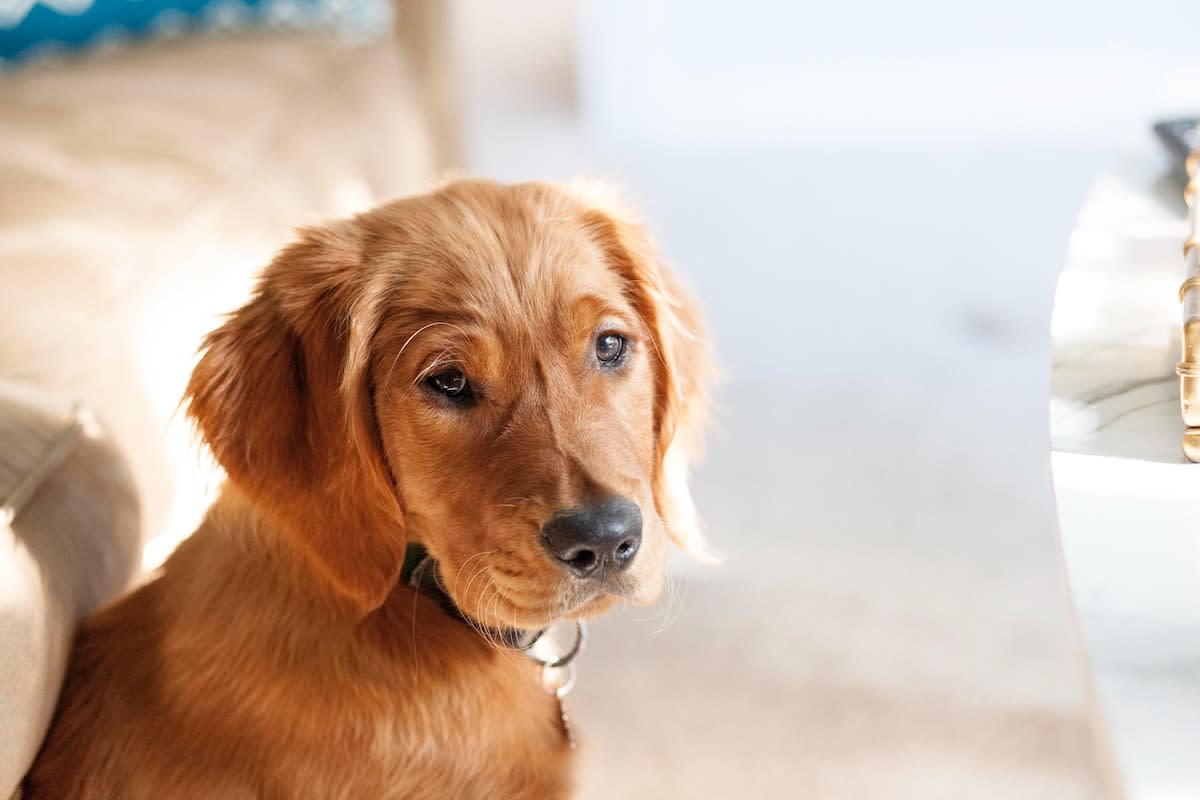Up to 40% of Australian dogs experience signs of separation anxiety — it’s become one of the most common complaints in dog ownership.
Separation anxiety is more than just a case of the blues, it’s a complex canine mental health and behavioural issue that can have multiple triggers and requires a strategic holistic approach to treat effectively. Some breeds are more prone to developing anxiety than others, making it a factor to consider before acquiring a dog.
Let’s take a closer look at what separation anxiety is and how it can be prevented and managed.
What is separation anxiety?
Anxiety is a response to fear in both humans and dogs. When a pup develops a strong pack bond with their parent, if the pack becomes separated, this can cause fear and distress.
Ranging from relatively mild signs to severe panic attacks, separation anxiety can present itself in different ways, including:
Excessive barking, howling or whining
Destroying furniture
Urinating or defecating inside when trained not to
Pacing
Constant trembling
Attempting to escape
What causes separation anxiety?
The causes aren’t fully understood, and it remains unclear why some pups experience separation anxiety, and others don’t. Some possible causes include:
Sudden change in schedule
Lack of training and socialisation
Being abandoned in the past
Changes in the people around them
Moving to a new house
Personality type
Puppies adopted during lockdown may be prone to separation anxiety, as they have likely become accustomed to you being at home and know no different.

How can you manage your dog’s separation anxiety?
If you think your dog might be taking your absences particularly hard, there are a number of strategies you can try to help relieve their stress:
Offer lots of exercise and playtime when you’re home
Remain calm when leaving and returning to the home
Practice leaving your pup for long and short absences
Associate anxiety triggers with a positive experience
Leave pups with high-value treats and toys
Create a comfortable environment
Consider doggy daycare, a pet sitter or dog walker
Remember, you can always speak to your vet or a behaviourist if you’re still having trouble solving these issues on your own, as it can be challenging. An integrative vet can look at your dog’s health through a holistic lens and check if the anxiety is affecting other aspects of their physical health, as well.
Ideally, you want to reinforce positive behaviours when your dog is still a puppy, but rest assured, with a little patience and understanding, it’s still possible to help older dogs suffering from separation anxiety, too.
How can your dog’s diet help?
Studies have shown that dogs with high stress levels can benefit from diets containing L-tryptophan, an amino acid that helps to increase serotonin levels. Turkey, chicken, eggs, lamb and beef all contain this amino acid.
It might also help to avoid feeding your pup foods with high-GI carbohydrates, as they can cause blood sugar spikes and affect their overall mood.
Why Lyka is great for dogs with separation anxiety
Lyka’s recipes have the key ingredients that not only meet nutritional requirements, but also support serotonin levels, helping to keep your pupper happy and healthy.
It’s also reassuring to know that Lyka meals don’t contain any high-GI carbohydrates like potatoes, rice and corn.
Lyka’s healthy, freshly cooked meals are crafted to give your pupper exactly what they need to live their best life.
)

)
)
)
)
)
